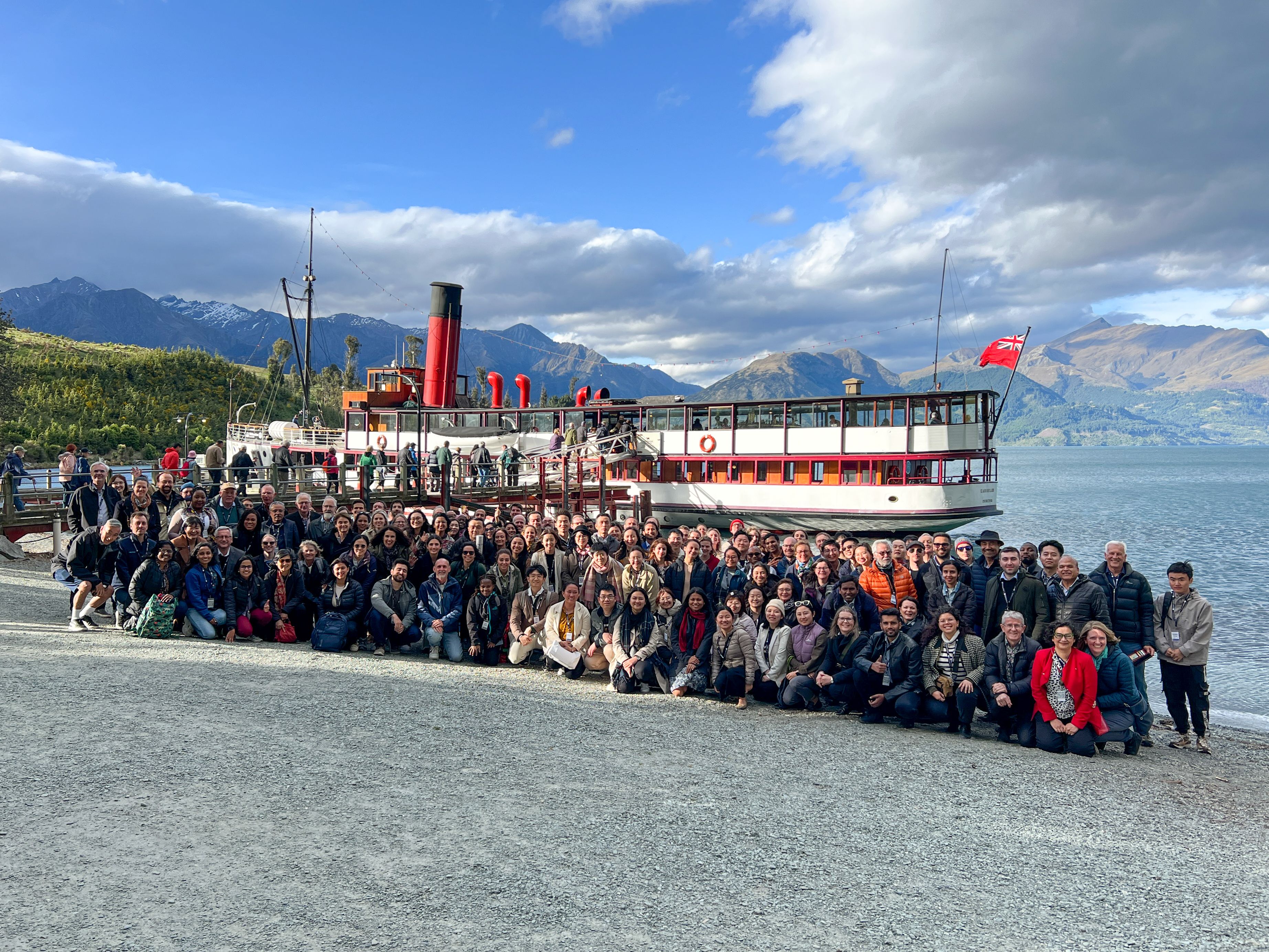
Delegates at the FSDH 2023 Conference Dinner
World-leading food scientists gather in Tāhuna Queenstown for FSDH 2023
28 November 2023 - Our 2023 Food Structures, Digestion and Health International Conference brought world-leading food scientists from around the world to picturesque Tāhuna Queenstown in November.
The conference brought together 212 delegates from 12 countries with common interests in food science, technology and nutrition. It was the 7th conference held in association with CSIRO.
This year’s conference was held from November 14-17 and centred on the latest scientific discoveries for optimising the nutritional value of sustainable foods by unpacking the hierarchy of complex structures occurring in foods and modifications during processing and gastrointestinal digestion. It is hoped that understanding the digestive behaviour of food materials will translate into the formulation of food that provides optimum nutrient bioaccessibility and absorption.
One of the benefits of coming together in a conference is the opportunity for early career researchers and students to present their research to leading scientists and learn the latest in food science. The conference kicked off with a Master Class, with expert speakers including Professor Erich Windhab (ETH Zürich, Switzerland), Professor José Miguel Aguilera (PUC, Chile), Professor Indrawati Oey (University of Otago, NZ), Professor Gail Bornhorst (University of California, Davis, USA), and Professor Manny Noakes (Nutrition Consultant, Australia).
Master Class topics ranged from the fundamentals of food structure, ultra-processed foods, and novel food processing, to where to next for in vitro models for digestion of complex meals, and challenges and opportunities in nutritional sciences.
Darren Rewi (Kaumātua, Ngāi Tahu, Mana Tāhuna Māori Trust) and Kemp Reweti (Pūhoro STEMM Academy) closed off the Master Class with a session on values-led models of education and business from a Māori perspective.
Rewi officially welcomed the delegates to Tāhuna Queenstown as part of the Welcome Event on the Tuesday evening. With the picturesque view over Lake Wakatipu, Rewi explained the background of the whenua (land) and the tangata (people) of the region.
Wednesday
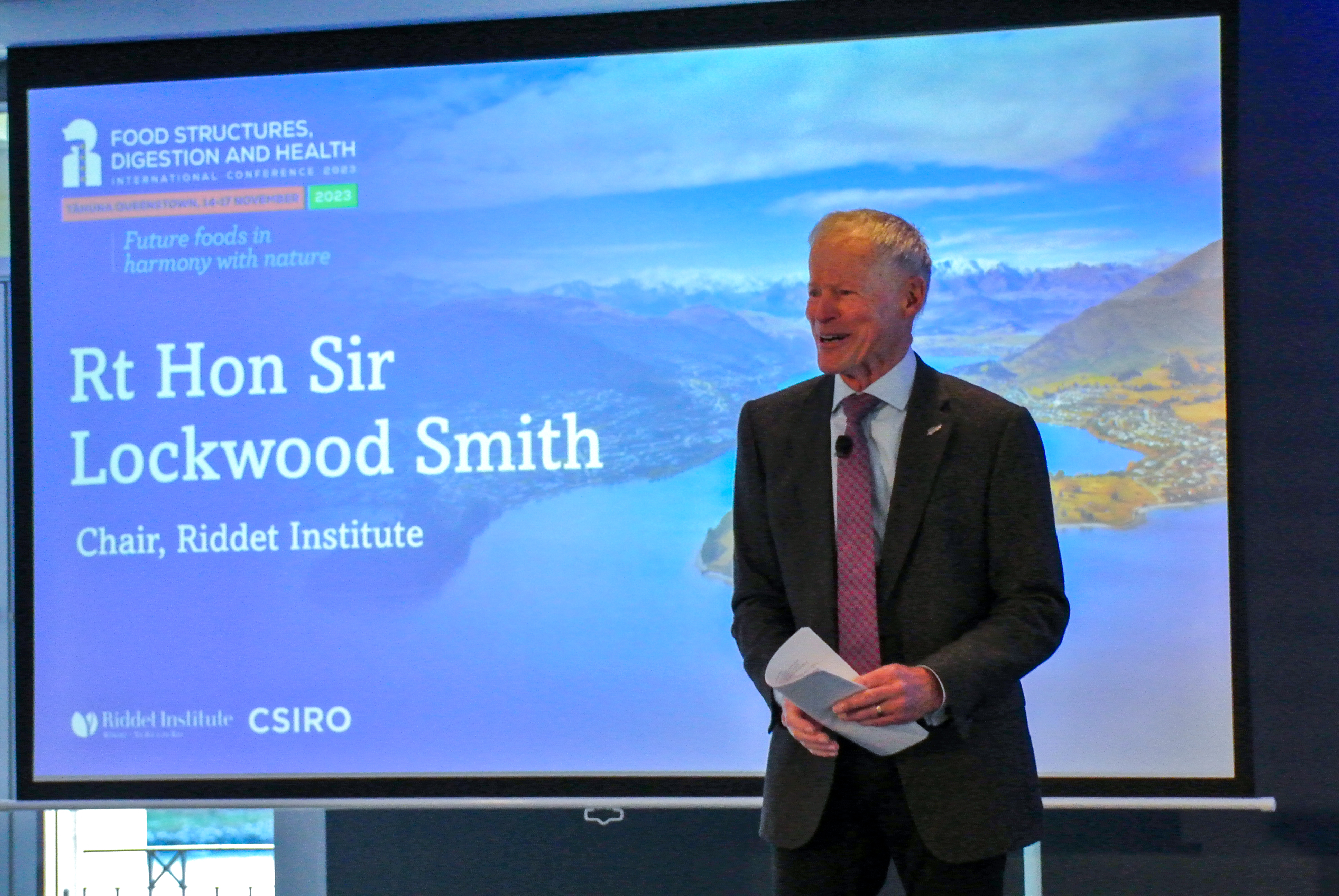
The Right Honorable Sir Lockwood Smith welcomed delegates on the first day of the conference.
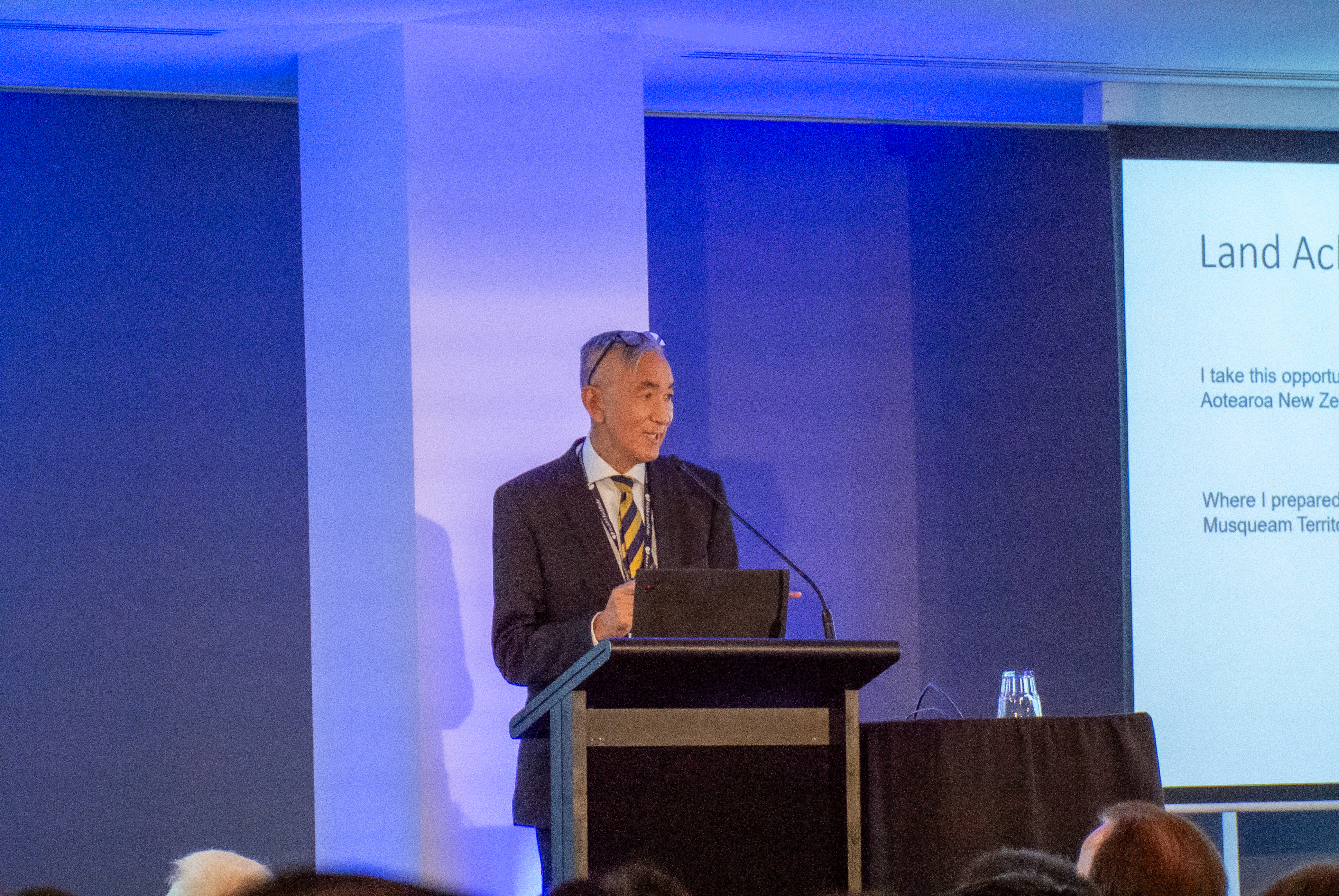
Professor Rickey Yada was one of the plenary speakers.
Professor Rickey Yada (University of British Columbia) set the scene for the day’s sessions, speaking on global food challenges and the importance of anticipating and overcoming food system vulnerabilities in a world beset by climate change, pandemics, and geopolitical strife.
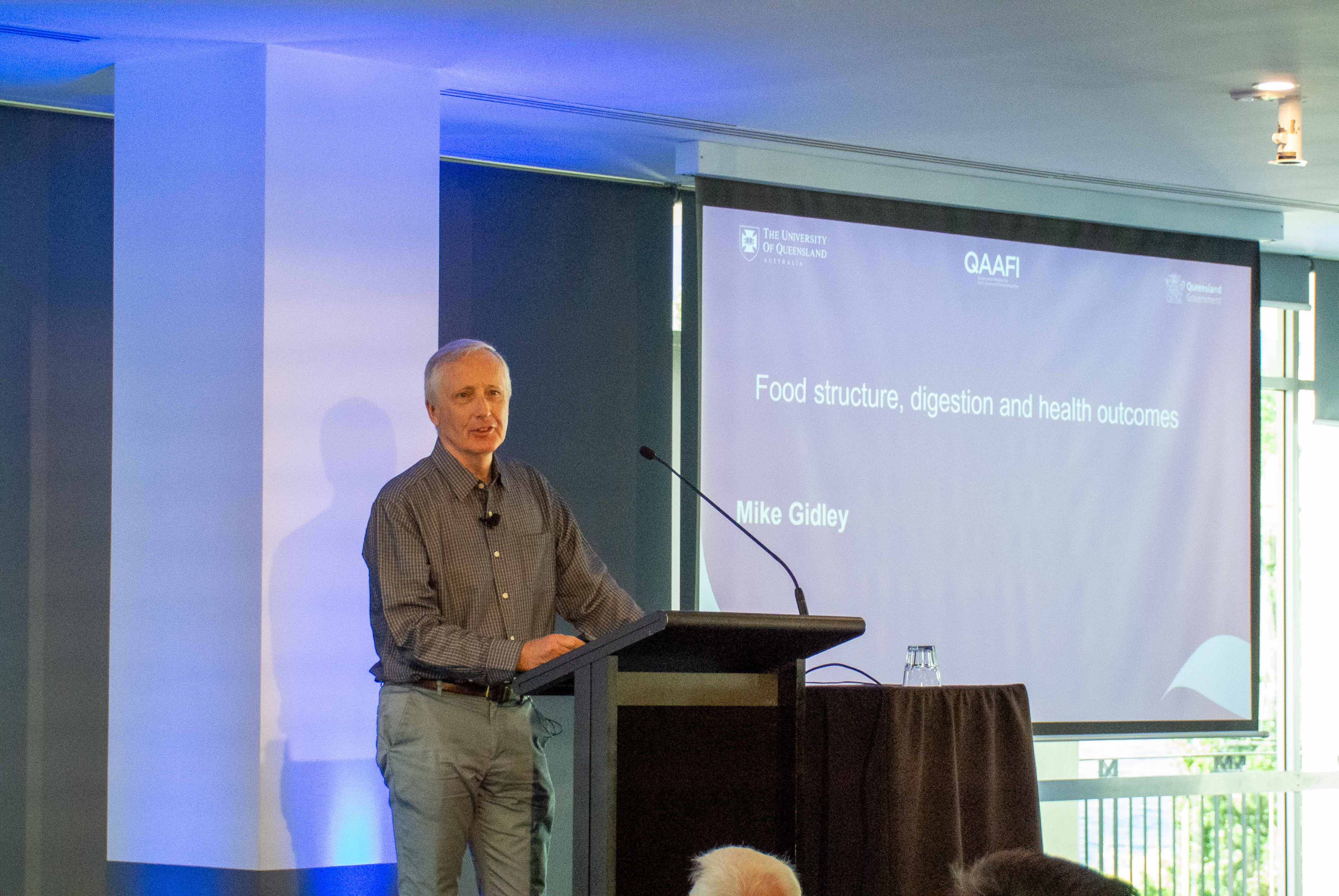
Emeritus Professor Mike Gidley (University of Queensland) gave some background on the conference, and looked more broadly at food structure, digestion, and health outcomes.
The day was broken into three sessions with a mixture of keynote speakers and short presentations from international and local scientists. Professor Erich Windhab shared on multi-scale food structure tailoring for nutrition and pleasure by sustainable process engineering, while Dr Simon Harrison (CSIRO) and Professor Gail Bornhorst spoke to the theme of advances in integrated models of human digestion. The Riddet Institute’s Dr Alejandra Acevedo-Fani gave an interesting presentation exploring how much we know about the interactions of bioactive substances and the milk matrix within the GIT.
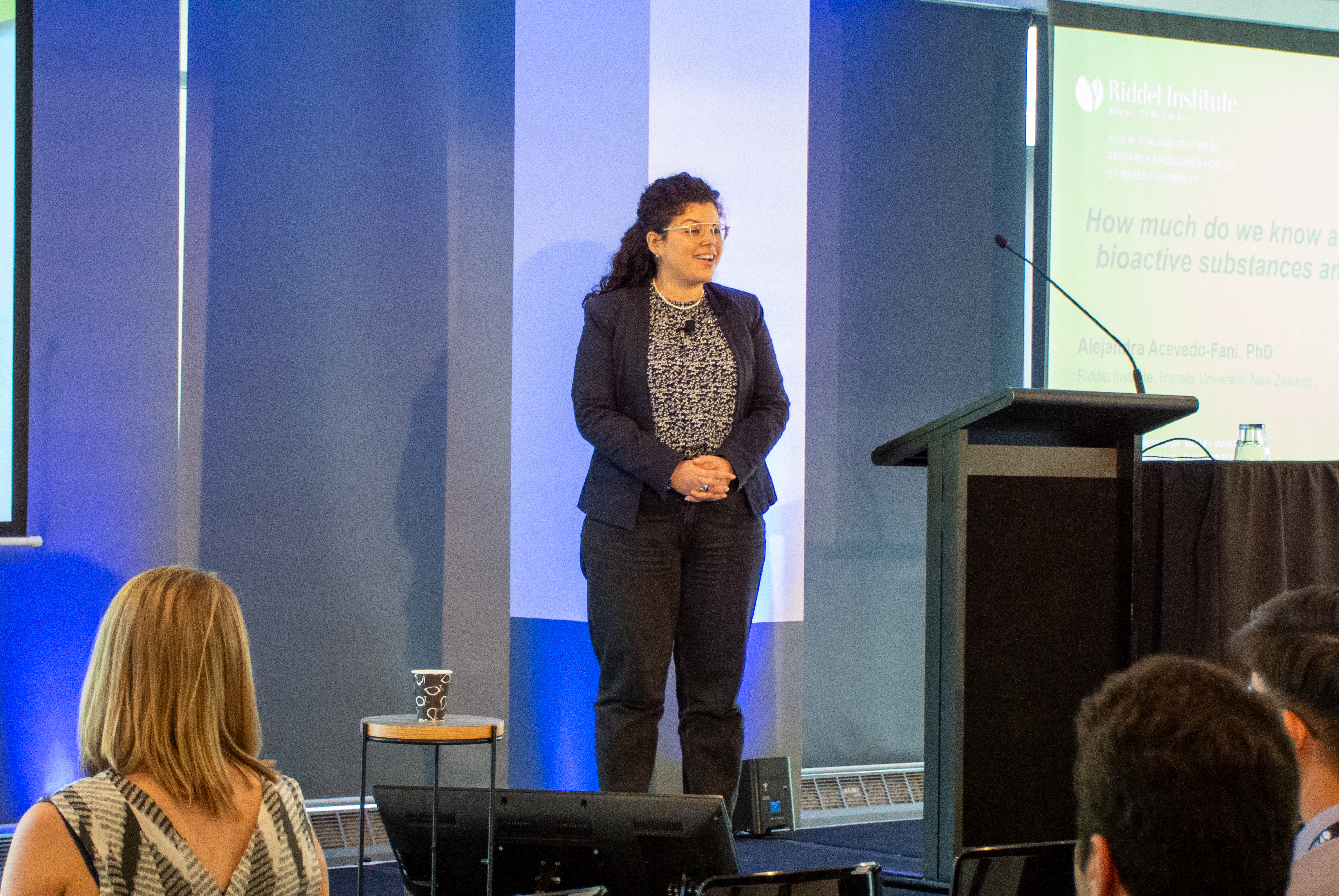
Dr Alejandra Acevedo-Fani from the Riddet Institute
A highlight of the first day was the poster session on Wednesday evening, sponsored by the Food and Function Journal, where scientists were able to share their findings with conference delegates and the judges. There were a wide variety of topics covered by the posters, and the judges had a hard job choosing the top three. Dr Gert-Jan Moggré (New Zealand Institute for Plant and Food Research) won first prize for his poster titled “Technology development for barley-based plant-based foods." Mengxiao Yang (Riddet Institute) and Norma Cecille Bagarinao (University of Otago) won second and third place respectively.
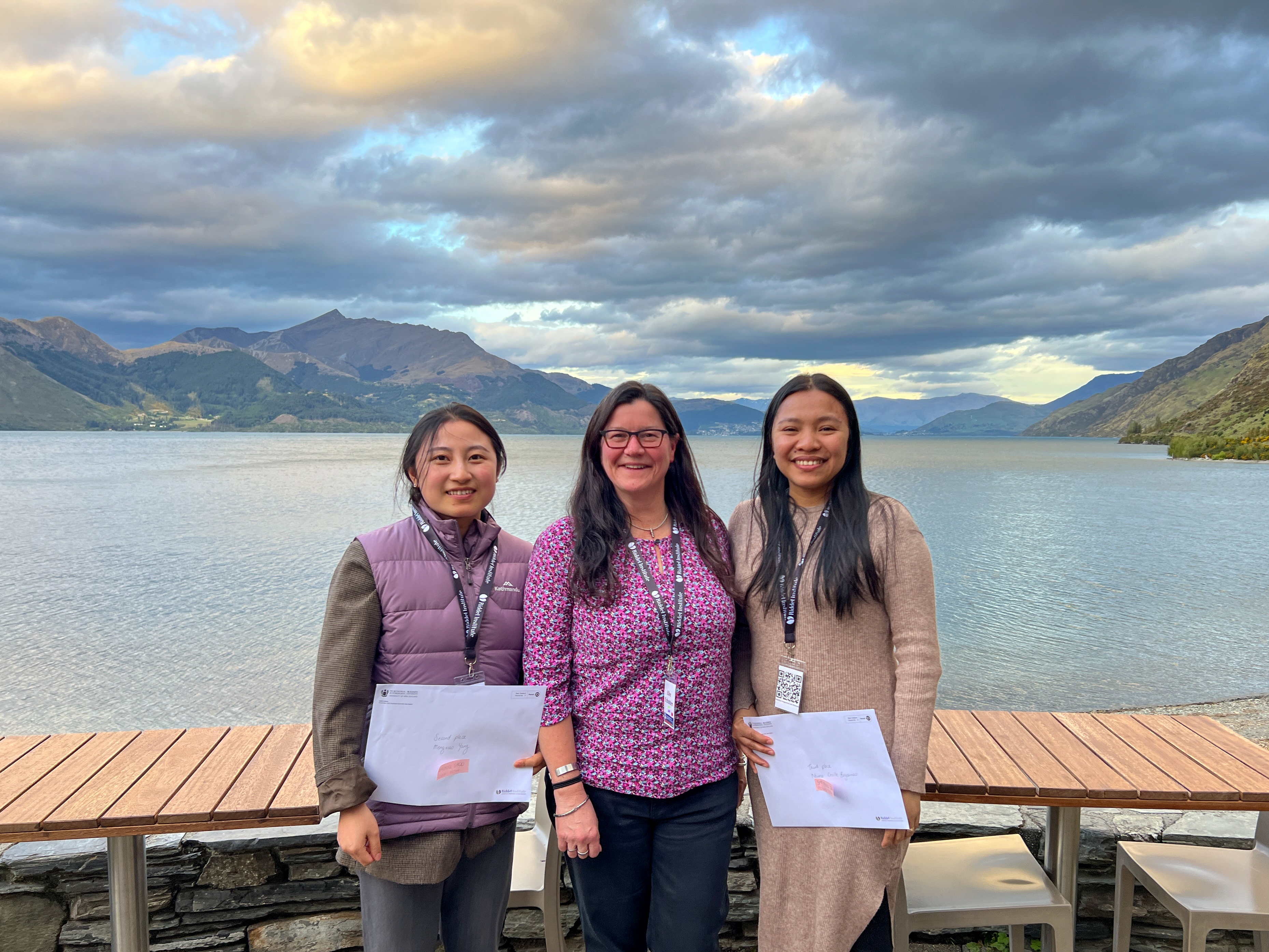
Photo of second and third place poster prize winners with Associate Professor Elke Scholten (Wageningen University & Research), centre, who presented the prizes on behalf of the Food and Function Journal.
Thursday
Dr Tsz Ning Mak from Nestlé's Institute of Health Sciences Singapore Hub opened the second day of the conference with an insightful talk on the work Nestlé is doing in nutritional science from an industry and consumer perspective in the 21st century. Dr Mak focused on the work Nestle is doing to support nutrition in pregnant and lactating women, as well as children, and how important it is to engage consumers through digital platforms.
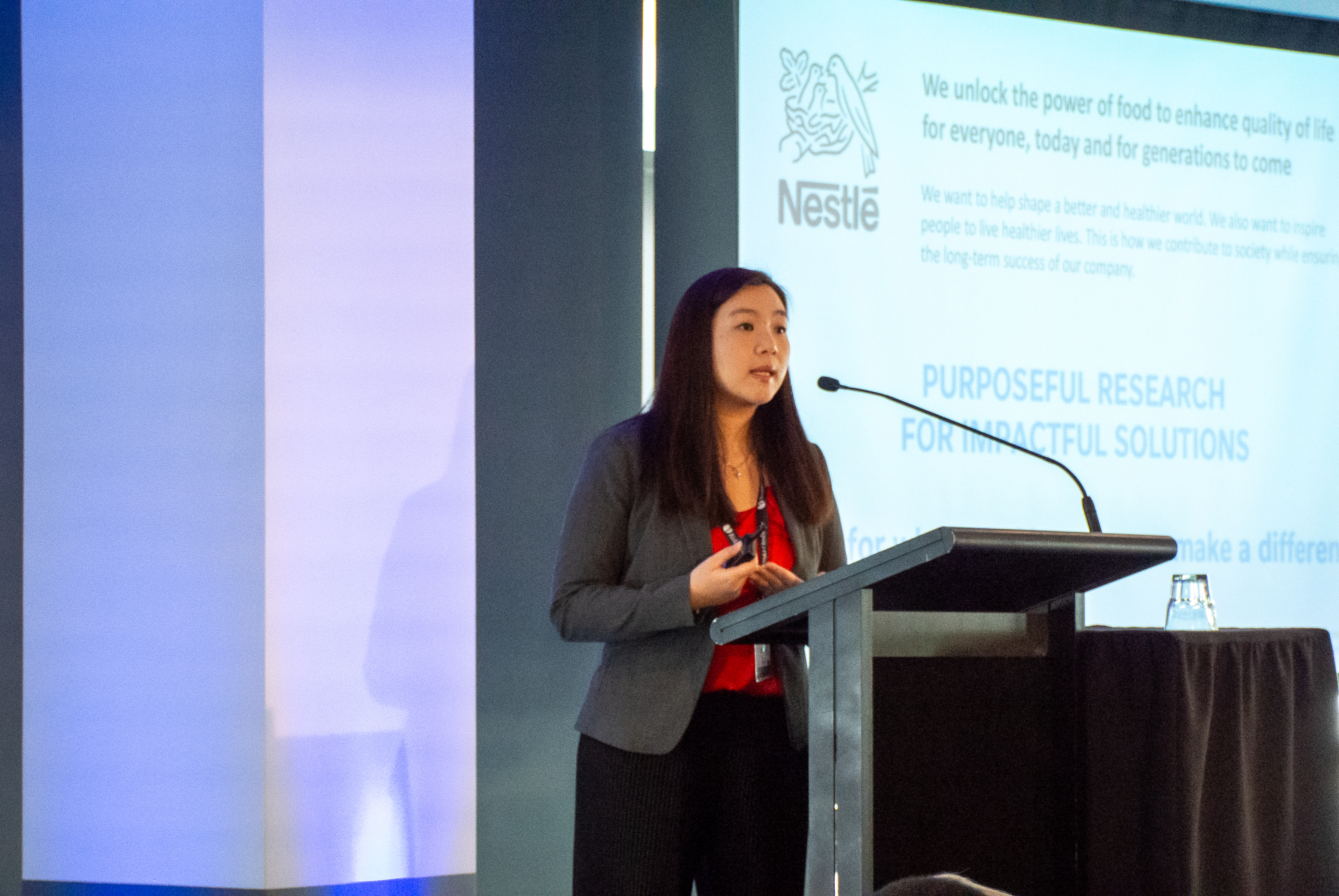
Dr Tsz Ning Mak, Nestlé Institute of Health Sciences Singapore Hub.
A new empirical paradigm to protect human health and food systems was presented by Dr Anthony Fardet (French National Institute for Agricultural Research), with a holistic view of nutrition and food science. The debate into whether personalised nutrition is feasible was explored by Professor Robert Wolfe (University of Arkansas), who spoke on the optimal vs required dietary protein intake in different populations.
The afternoon focused on the theme of foods for enhancing the gut microbiome and human health. Dr Cuong Tran (CSIRO) looked at gut barrier integrity, microbiome and health, with a focus on the role of nutrition. The day ended with a panel discussion on redefining dietary guidelines and food labelling for improved health outcomes.
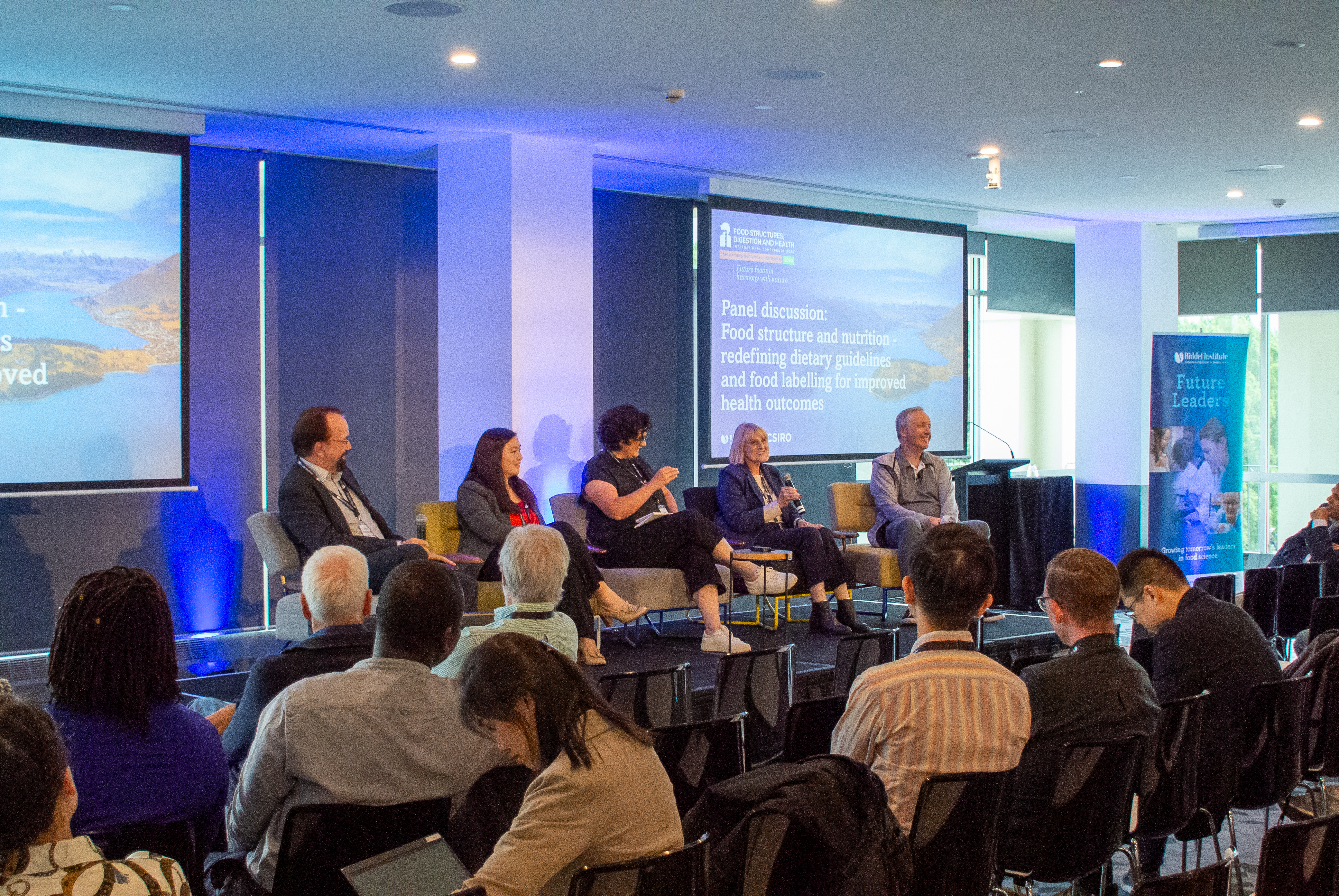
From left: Professor Erich Windhab, Dr Tsz Ning Mak, Associate Professor Lisa Te Morenga, Professor Manny Noakes, and panel chair Emeritus Professor Mike Gidley.
A highlight of FSDH is always the conference dinner, and this year was no exception. The evening started with a sailing on the historic TSS Earnslaw across Lake Wakatipu to Walter Peak Station for a gourmet BBQ buffet dinner, followed by a farm show of shearing and herding sheep.

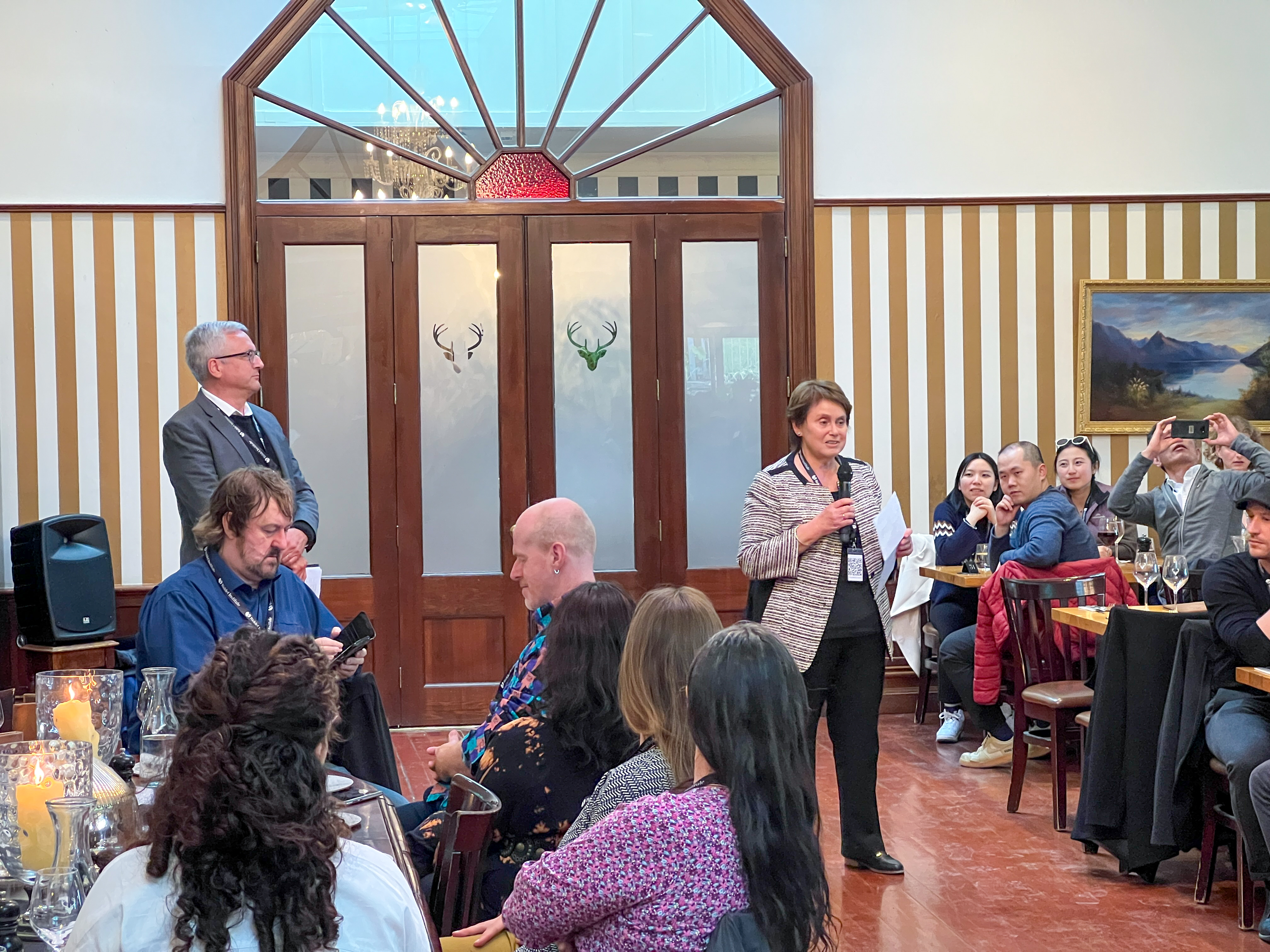
Left: Sheep shearing show at Walter Peak Station. Right: Dr Christina Coker spoke on behalf of the dinner sponsor Fonterra Co-operative Group.
Friday
The final day of the conference focused on sustainable food production and the challenges in new product development. Professor Tarek Zohdi (University of California Berkeley) gave delegates a glimpse into the next generation of food systems, looking at modelling and simulation tools for industrial and societal research applications with digital twins and genome-based machine-learning.
Professor Oded Shoseyov (Hebrew University of Jerusalem) spoke via video on the plant-age, looking at plant-based foods as the food for the future, while Dr Sunil Sukumaran (Perfect Day) spoke about precision fermentation and its benefits.
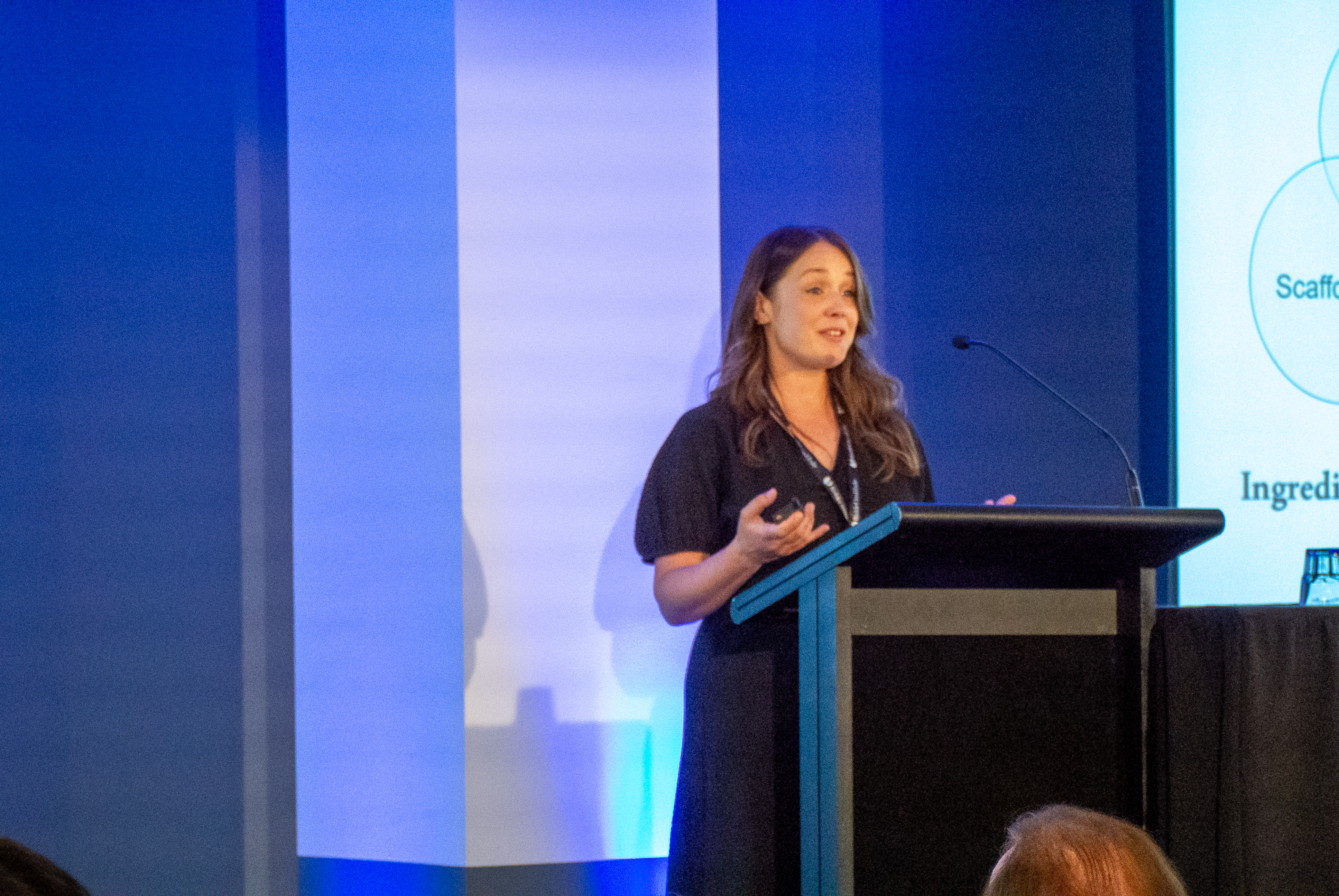
Dr Laura Domigan (University of Auckland) shared her research on cell-based meat production and the situation in Aotearoa.
While using plant proteins in food can have many benefits, there are also many challenges. Associate Professor Elke Scholten (Wageningen University & Research) explored how we can control the functionality of plant proteins to make them more versatile. This led smoothly into the final and fascinating panel discussion on traditional and novel animal and plant proteins with a future perspective.
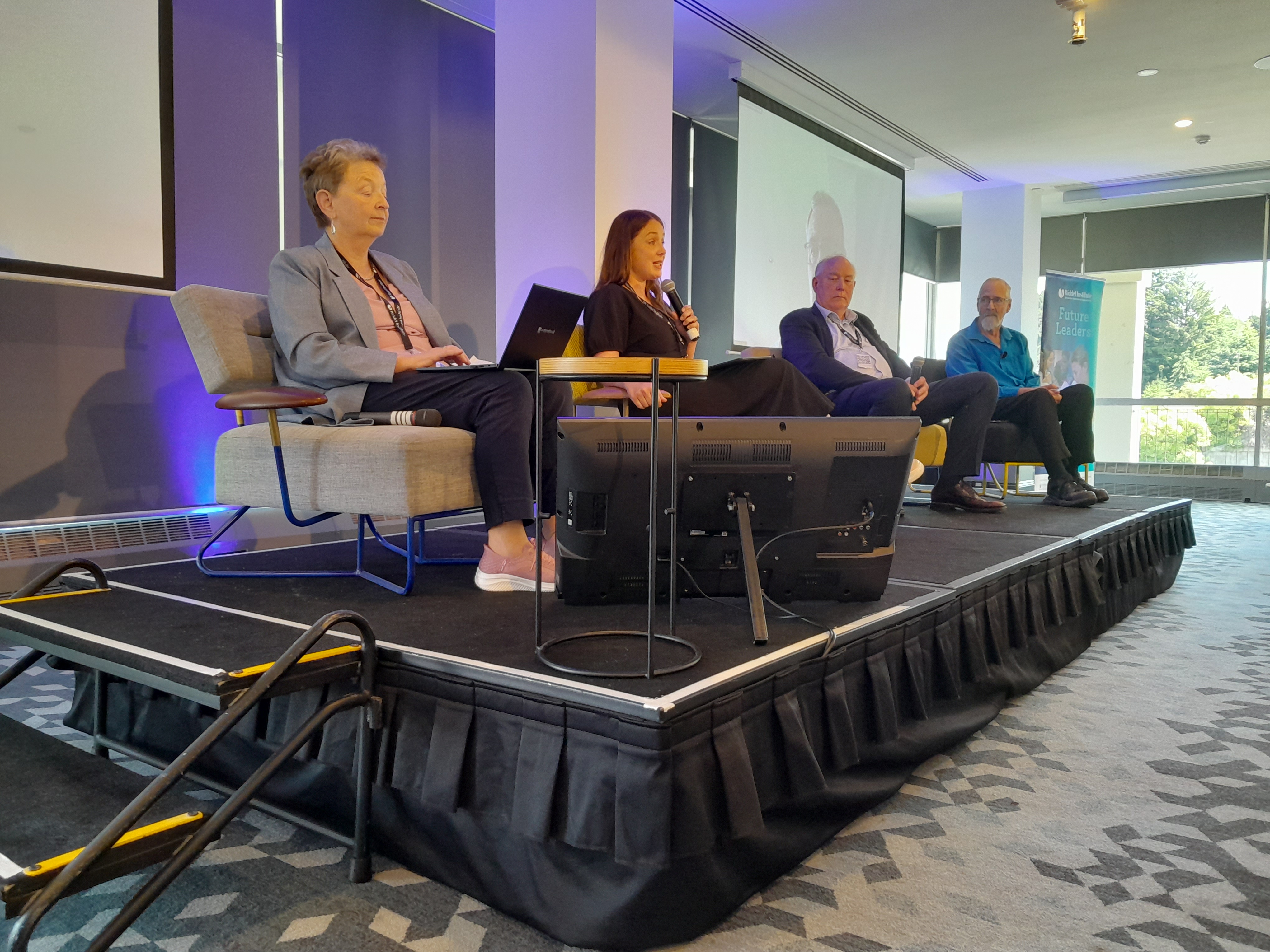
From left: Heather Riddell (Ministry for Primary Industries – Manatū Ahu Matua), Dr Laura Domigan (University of Auckland), Distinguished Professor Paul Moughan (Riddet Institute), panel chair Dr Mike Boland (Riddet Institute), and Professor Jeremy Hill (Fonterra Co-operative Group) on screen.
Alex Worker (NewFish, Impossible Foods), Chair of Future Food Aotearoa, gave the closing remarks for the conference, looking ahead to the future of food research.
FSDH 2023 offered the opportunity to form new networks, establish research collaborations and partnerships, and develop joint research initiatives. The week was full of great scientific debate and discussions, and the research shared covered a wide range of research into the future of food and nutrition not just in Aotearoa New Zealand but globally as well.
Thank you to the conference sponsors: NewFish, Impossible Foods, Fonterra Co-operative Group, Biosouth, AgResearch, and the Food and Function Journal. Thank you also to the Technical and Organising Committees for all of their hard work to pull the conference together.
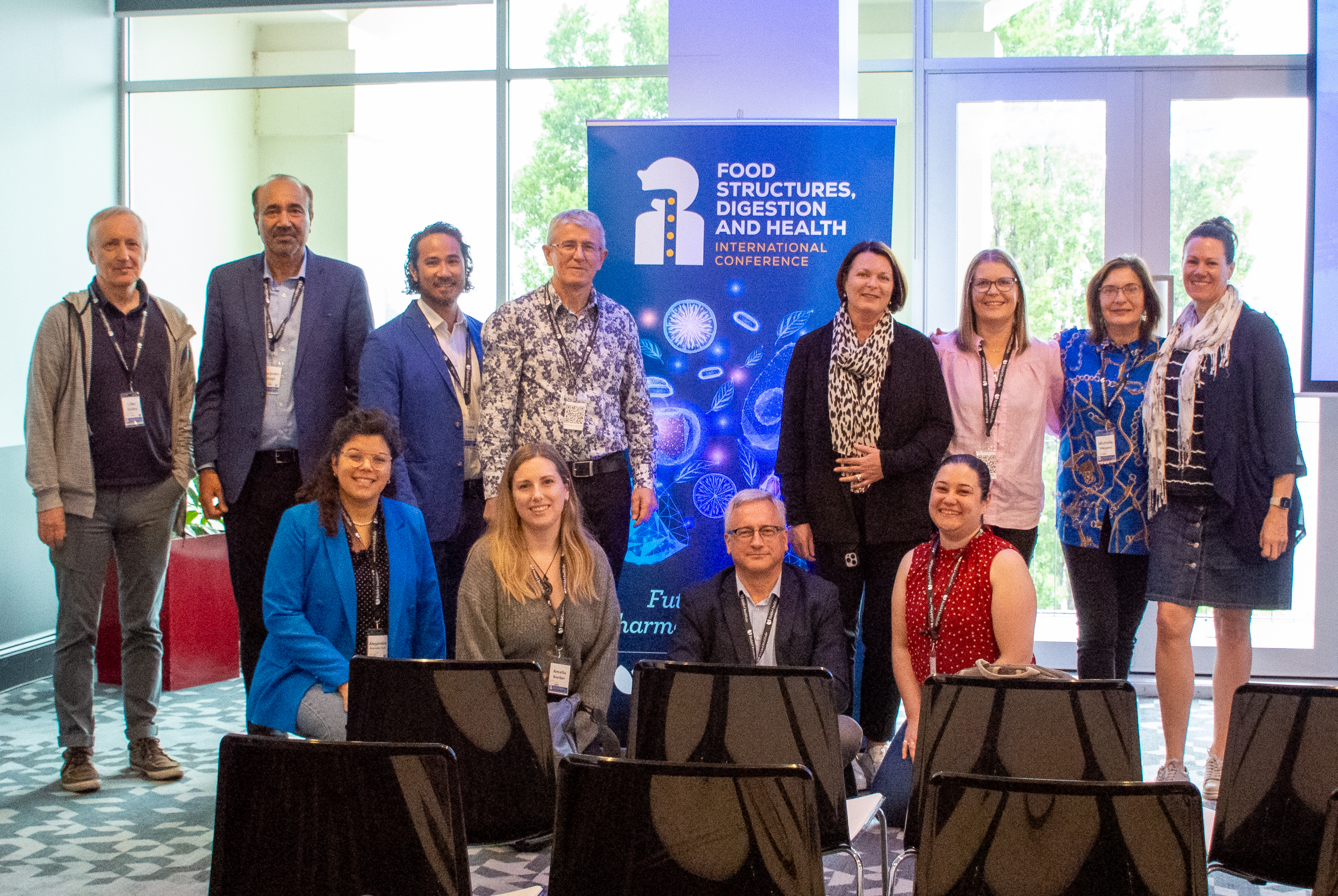
The Technical and Organising Committees for FSDH 2023.
